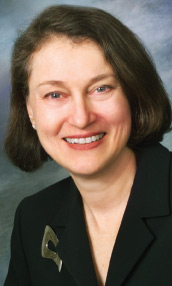 About Dr. Carolyn Stone
About Dr. Carolyn Stone
Dr. Carolyn Stone has worked in education for 40 years. After working as a teacher for 13 years, she transitioned to student services as a school counselor and school psychologist in several elementary and high schools. She also served as a regional guidance coordinator for the Florida Department of Education and Supervisor of Guidance for Duval County Public Schools in the 1990s. Stone started as an Associate Professor at UNF in 1995 and was later promoted to Assistant Professor and to her current position of Professor of Counselor Education. In 1998, under Stone’s leadership, UNF was one of six universities out of more than 100 applicants to receive the DeWitt Wallace-Reader’s Digest Transforming School Counseling Grant. Upon receipt of this grant, UNF’s school counseling program was reconfigured and the School Counselors: Supporters of Academic Rigor (SOAR) Program was born. In April 2012, SOAR will graduate its 12th cohort of transformed school counselors.
– – – – – – – – –
Connecting the Dots with counselor lifetime achievement award recipient
Dr. Carolyn Stone, University of North Florida
University of North Florida professor of counselor education Dr. Carolyn Stone teaches and researches in the area of school counselors and accountability and the law and ethics for school counselors. Prior to becoming a counselor educator in 1995, Stone spent 22 years with Duval County Public Schools in Jacksonville, Fla., where she served as a middle school teacher, elementary and high school counselor and supervisor of guidance for 225 counselors. She was the 2006 president of the American School Counselor Association (ASCA) and she continues to serve ASCA as the ethics chair. In 2010, ASCA awarded her its highest honor–the Mary Gerke Lifetime Achievement Award and in November she will receive the Florida School Counselor Association’s Lifetime Achievement Award. A past president of the Florida Counseling Association and the Florida Association of Counselor Educators and Supervisors, Stone has delivered more than 400 workshops in 49 states and 15 countries, and she has authored three books and dozens of journal articles.
Stone says that in the last 10 years, the biggest transition in the school counseling profession has been the move to connect school counseling more closely to the school mission. A school mission statement often defines what a school offers and the way they provide it lines up with state and national educational goals. “Education and schools are the great equalizers. This one institution promises to give every American an equal opportunity to better their lives. Education can aid in breaking the cycle of poverty. The trick is to connect what we do as school counselors to the school academic success picture and to demonstrate in our actions that we believe all children can achieve. The last decade has proven a stronger tie to school counselor accountability.”
There is a movement to level the playing field, Stone says. “Counselors are keenly aware of the social justice aspect. We can see who has been left out of the success equation. We can see who has been given the rigorous programs and who hasn’t. We want to remove the barriers to academic success. We can’t change who students go home to, but the entire school including teachers, counselors and staff can impact their opportunities for 35 hours a week through advocacy for each child to have a level playing field.”
Stone says counselors are using all the traditional skills of counseling, coordination, and consultation as well as increased emphasis on being systemic change agents, leaders, and academic and career advisers in order to better connect to the academic mission of schools. “Some students come to us and know how to connect the dots between what they are doing in school and their future opportunities. Others may not know the questions to ask and it is our role to close the information gap as career and academic advisers. We want to raise the aspirations of each student not wait for aspirations to appear. Our role is to close the opportunity gap as well as the information gap so that all students have the information they need to make informed decisions. In this way we help students become empowered. ”
Counselors are an amazingly resourceful group of people, Stone says. “Our loads are heavy and our roles are vast. We are sitting with 500 to 600 students. It is mathematically impossible to do all that we need to for each and every student, but if we involve other stakeholders and access community resources including faith-based groups, we can help students reach their potential. Brokering resources is a primary role of school counselors,” Stone says. “At the University of North Florida, there is a course called Management of Resources that teaches counselors how to explore the who, what, and where in the community in order to access help and resources for students. When you give people a voice and a role, their voices and opinions can rise together. We have to find natural allies.”
Stone says what makes the counseling profession rich is the opportunity school counselors have to collaborate with teachers and to impact the instructional program. Good teaching matters and school counselors support teachers and the academic mission of schools. As powerful partners, teachers and school counselors open doors for students. “Especially satisfying is when we are door openers and not gate keepers. It is heady when we have had a role in helping students come to graduation and be able to choose from a wide array of opportunities.”

